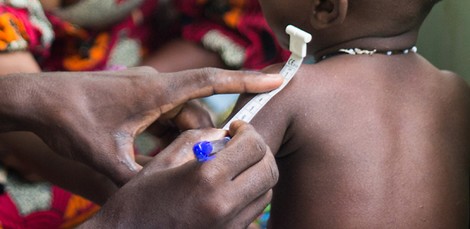Your podcast discovery platform
Curious minds select the most fascinating podcasts from around the world. Discover hand-piqd audio recommendations on your favorite topics.

piqer for: Global finds Health and Sanity Doing Good
Bangalore-based Rashmi Vasudeva's journalism has appeared in many Indian and international publications over the past decade. A features writer with over nine years of experience heading a health and fitness supplement in a mainstream Indian newspaper, her niche areas include health, wellness, fitness, food, nutrition and Indian classical Arts.
Her articles have appeared in various publications including Mint-Wall Street Journal, The Hindu, Deccan Herald (mainstream South Indian newspaper), Smart Life (Health magazine from the Malayala Manorama Group of publications), YourStory (India's media technology platform for entrepreneurs), Avantika (a noir arts and theatre magazine), ZDF (a German public broadcasting company) and others.
In 2006, she was awarded the British Print-Chevening scholarship to pursue a short-term course in new-age journalism at the University of Westminster, U.K. With a double Masters in Globalisation and Media Studies from Aarhus Universitet (Denmark), University of Amsterdam and Swansea University in Wales, U.K., she has also dabbled in academics, travel writing and socio-cultural studies. Mother to a frisky toddler, she hums 'wheels on the bus' while working and keeps a beady eye on the aforementioned toddler's antics.
Iron Supplements To Treat Anaemia? Nope, They Often Don't Work
Iron deficiency is so common that it has become commonplace. The only nutrient deficiency that is also prevalent in developed countries, the statistics are staggering. Over 30% of the world's population are anaemic, exacerbated by diseases such as malaria, hookworm and HIV/AIDS. Every second pregnant woman in developing countries and nearly 40% of preschool children are estimated to be anaemic.
I am rattling off these numbers because of two reasons. First, despite its high morbidity rates, large-scale anaemia is not in the public consciousness. When is the last time you read anything about its crippling health consequences, such as the loss of productivity (not to mention lives) and the chronic cognitive impairment it causes? Unless you frequent the WHO’s statistics, you would be blissfully unaware of how huge a health issue it still is.
Second, in countries where patients are most susceptible to anaemia, iron supplements don’t work. In fact, they can make things worse.
This article is about a possible breakthrough in treating anaemic patients in such countries. Cambridge researcher Dr Dora Pereira says here that oral iron supplements contain iron that quickly dissolves in the gut, and is thus immediately 'available' to all vital organs. But in patients who are already anaemic and are also carrying other infections, the same iron is as quickly available to the cells of the pathogen they are carrying. The result? Increase in infection. This is why, she says, the 'global burden' of iron deficiency, despite large-scale public health efforts, hasn’t lessened. For over 12 years now, Pereira and her co-researchers have been trying to find an alternative that mimics the iron in regular diet and releases slowly into the blood. The result is a pill with a new combination, trials for which are now being conducted on 700 children in Gambia. If it works, she says, "it will be a very nice story of a very simple solution".

Intresting article